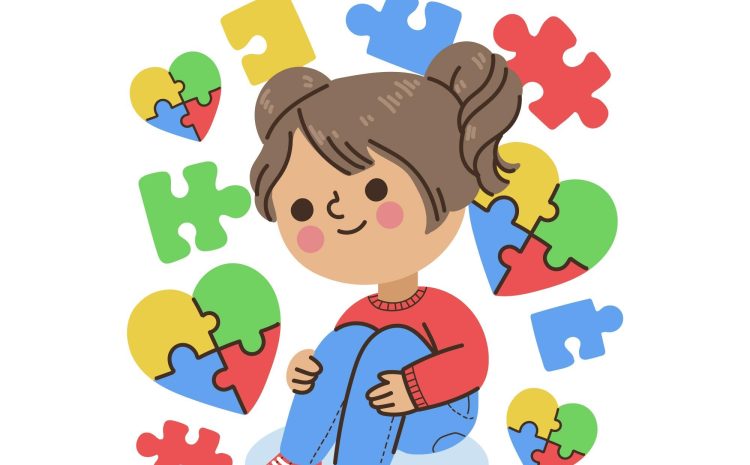Teaching the Quran to autistic children
What is Autism?
Autism Spectrum Disorder (ASD) is a neurological condition that affects an individual’s ability to communicate, interact, and learn conventionally. However, this does not mean that children with autism cannot enjoy a fulfilling and spiritually enriching education. In recent years, there has been a growing awareness of the importance of tailoring educational methods to meet the unique needs of autistic children. One such approach that has shown promise is teaching them the Quran. This article explores how Quranic education can be a powerful tool for fostering the development of autistic children, helping them connect with their spirituality, and enriching their lives in meaningful ways.
Education for Autistic Children:
Education is a fundamental right for all children, including those with special needs. In the context of religious education, teaching the Quran to children with autism presents unique challenges and opportunities. Autistic children, like their neurotypical peers, can benefit from the spiritual and moral guidance found in the Quran. However, it’s essential to approach this education with sensitivity, patience, and tailored methods to accommodate the individual needs of each child.
Autism is a complex developmental condition characterized by a range of symptoms, such as difficulties in social interaction, communication challenges, and repetitive behaviors. The severity and combination of these symptoms can vary greatly from one individual to another. When teaching the Quran to children with autism, it’s crucial to consider their specific needs and abilities.
Understanding Autism and its Challenges:
Autism is a complex neurodevelopmental disorder, and its impact varies widely from one individual to another. Common challenges that children with autism may face include difficulties in social interaction, communication, repetitive behaviors, and sensory sensitivities. These challenges can make traditional educational methods less effective for them. Some children with autism may exhibit challenging behaviors, such as aggression or self-stimulation. Understanding the triggers for these behaviors and implementing effective behavior management strategies is essential.
The Importance of Early Intervention:
Early intervention is crucial for children with autism. Research has shown that the earlier educational and therapeutic support begins, the better the long-term outcomes. Early childhood programs, such as Early Start Denver Model (ESDM) and Speech and Language Therapy, play a pivotal role in equipping children with the skills they need to succeed.
Teaching the Quran to autistic children is Easy
- Understand the Child’s Needs: Before you begin teaching, it’s essential to understand the specific needs and preferences of the autistic child. Consider factors such as their communication style, sensory sensitivities, learning preferences, and any challenges they may face.
- Creating an Inclusive Environment: Collaboration between parents, teachers, and the community is crucial in providing the best Quranic education for autistic children. Parents can play an active role in reinforcing Quranic teachings at home and in seeking community support. Communities, in turn, can offer inclusive programs and activities that involve autistic children in religious and social events. Encourage family involvement.
- Build Trust and Rapport: Develop a strong, trusting relationship with the child. Autistic children often respond better to educators and caregivers they feel safe and comfortable with.
- Seek Professional Guidance: Consider consulting with special education experts, therapists, or autism specialists for additional support and strategies tailored to the specific child’s needs.
- Individualized Learning Plans: Every child with autism is unique, and it’s crucial to develop individualized education plans. Recognizing a child’s strengths, challenges, and preferences can help tailor the Quranic education experience to meet their specific needs.
- Communication Difficulties: Many autistic children struggle with communication. Some may be non-verbal, while others may have difficulty with expressive or receptive language. Teaching them effectively may require alternative communication methods such as visual aids, sign language, or augmentative and alternative communication (AAC) devices.
- Visual and Auditory Learning: Autistic children often excel in visual and auditory learning. The Quran, with its beautiful Arabic calligraphy, is a highly visual text, making it an ideal medium for engaging them. Incorporating visuals and audio resources can capture their attention and facilitate learning.
- Repetition and Routine: Many autistic children thrive on structured routines. The Quran’s recitation, memorization, and repetition-based learning approach aligns with their preferences. Consistent practice can help them absorb Quranic teachings over time.
- Sensory Accommodations: Sensory sensitivities are common among autistic children. Teachers can create a comfortable learning environment with sensory accommodations such as calming lighting, soft textures, and noise reduction, allowing them to focus on their Quranic studies.
- Simplify Language: Adapt the language used to teach the Quran to be more straightforward and concise. Break down complex concepts into smaller, manageable parts.
- Interactive Learning: Utilize interactive methods, such as role-play, hands-on activities, and arts and crafts, to help children connect with Quranic stories and teachings.
- Social Stories: Create social stories or visual narratives that explain Quranic principles and stories clearly and simply.
- Patience and Flexibility: Teaching the Quran to autistic children requires patience and flexibility. Some may require more time to grasp certain concepts, while others may excel in specific areas. It’s important to celebrate every achievement, no matter how small, and provide ongoing support.
Benefits of Quranic Education for Autistic Children
- Spiritual Connection: Learning the Quran offers a deep spiritual connection. It allows autistic children to engage with their faith, promoting inner peace and a sense of belonging within their religious community.
- Improved Communication: Quranic teachings can serve as a bridge for improved communication. Recitation, discussion, and memorization of Quranic verses provide opportunities for enhancing language and social skills.
- Enhanced Concentration: The structured nature of Quranic learning can help improve an autistic child’s concentration and attention span, skills that can be applied to other areas of their lives.
- Emotional Regulation: Through Quranic education, children can learn about the principles of patience, compassion, and empathy, promoting emotional regulation and self-control.
- Supportive Educational Environments: Effective Quranic education for autistic children requires collaboration between parents, teachers, and the community.
- Teacher Training: Educators working with autistic children should receive training on autism awareness and strategies for effective teaching.
- Parent Involvement: Encourage parents to be actively involved in their child’s Quranic education. This collaboration helps in understanding the child’s unique needs and progress.
- Inclusive Communities: Mosques and religious institutions should strive to become more inclusive by offering resources and support for autistic children and their families.
Conclusion
Teaching the Quran to autistic children is a noble and inclusive endeavor. By understanding the unique needs of each child, creating an accommodating learning environment, and using tailored teaching methods, we can help autistic children connect with the sacred teachings of the Quran. We must work together as a society to ensure that all children, regardless of their abilities, can access and engage with their faith and spirituality. Quranic education can be a valuable resource for autistic children, providing them with a holistic learning experience that addresses their spiritual and educational needs. By creating a supportive and inclusive environment, tailoring teaching methods to their specific requirements, and recognizing their unique strengths, autistic children can embark on a spiritual journey that fosters growth, connection, and a deep understanding of their faith. In doing so, we can enable these children to lead fulfilling lives while nurturing their spirit through the teachings of the Quran towards all religions.





